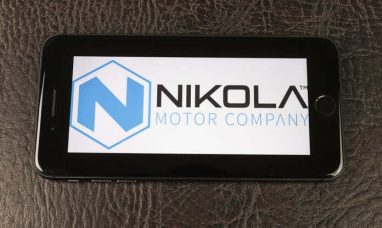Alphabet’s (NASDAQ:GOOGL) Google continues to enhance its suite of products with Gemini, its advanced large language model (LLM), intensifying the competition in generative AI among peers such as Microsoft (NASDAQ:MSFT) and Amazon (NASDAQ:AMZN).
The latest upgrade in Android Studio, integrating Gemini Pro, underscores this effort. Developers can now pose coding-related queries, seamlessly integrating generative AI-powered features into their apps using the Gemini API starter template within Android Studio.
Google aims to enhance code completion, debugging, resource discovery, and documentation writing through improved answer quality within Android Studio powered by Gemini. The rollout of Gemini in the Android Studio Jellyfish version spans over 180 countries.
In addition to Android Studio, Google has introduced Gemini 1.5 Pro in a public preview on Vertex AI. This version can process context ranging from 128,000 tokens to 1 million tokens, significantly surpassing the processing capacity of competing models like Anthropic’s Claude 3 and OpenAI’s GPT-4 Turbo max.
These initiatives are poised to bolster Google’s standing among developers and enterprises, fostering momentum in generative AI adoption.
Expanding Generative AI Efforts
These initiatives indicate that Alphabet is strategically positioned to seize opportunities in the burgeoning generative AI market. A report by Fortune Business Insights projects the global generative AI market to reach $667.96 billion by 2030, with a robust CAGR of 47.5% between 2023 and 2030.
Beyond Gemini Pro integration, Google has introduced several open-source tools to support generative AI projects and infrastructure. MaxDiffusion, JetStream, MaxText, and collaborations with AI startups like Mistral and Hugging Face exemplify these efforts.
MaxText now offers Gemma 7B, OpenAI’s GPT-3, Llama 2, and models from AI startup Mistral, enhancing text-generating capabilities targeting tensor processing units (TPUs) and NVIDIA GPUs in the cloud. Google also launched Gemini Code Assist, an AI code completion and assistance tool tailored for enterprises.
Competitive Landscape
Google faces competition from Microsoft and Amazon, aggressively expanding their generative AI capabilities. Microsoft’s integration of GPT-4 into Bing and Edge, along with Azure OpenAI Service offerings, showcases its commitment to advancing in this space. Collaborations with OpenAI on data center projects further highlight Microsoft’s focus on infrastructure for generative AI-driven tasks.
Amazon’s AWS leverages Amazon Bedrock and partnerships with NVIDIA to strengthen its generative AI capabilities. The collaboration with NVIDIA aims to enhance inference workloads for multi-trillion-parameter language models, positioning AWS as a formidable player in the generative AI domain.
Featured Image: DepositPhotos









